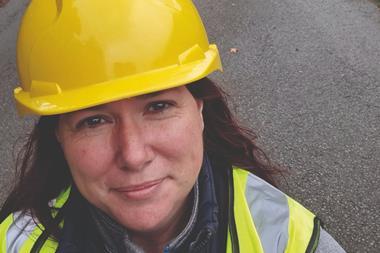The life science sector has received increased attention from real estate investors and developers recently, with new entrants to the UK market joining a handful of rapidly expanding established players.

Covid-19 is clearly having a profound impact on societies and economies around the world, but what impact is it having on the life science sector? And what might be the short and medium-term implications?
The general picture
The life science industry sits alongside the healthcare profession at the forefront of dealing with the coronavirus crisis. A vaccine is the ultimate goal, but in the meantime, the focus must be on diagnostic testing and repurposing existing drugs to treat the disease. Again, many life science businesses are operating flat out to develop new and more effective diagnostics and to develop treatments. As a consequence, companies working in these fields remain strong and indeed are growing as more resources are needed to cope with the volume of testing required.
The loss of staff who contract the virus or need to self-isolate will clearly have an impact on operations across the board, but laboratory research is already highly automated, albeit requiring skilled staff to operate the equipment and interpret results. Businesses are also reducing levels of transmission between staff by breaking into small teams and operating shift patterns over longer days, seven days a week.
The impact on real estate
The majority of life science businesses in the UK are small or medium sized entities, often based on science parks or in multi-occupier buildings. Not all will be working on addressing the challenges of Covid-19; others will be concerned with mitigating the impact of the virus outbreak on their business.
In the world of drug discovery and development, there are broadly two types of company: those developing therapeutics or vaccines; and those providing discovery and development services to the therapeutics and vaccines companies. The lengthy time it takes to bring a new drug to market means therapeutics companies operate on very long timescales of 10 to 15 years. The large pharmaceutical companies, such as GSK and AZ, are well resourced and will no doubt continue with R&D as normally as possible, taking measures to protect staff and maintain activity. We are not detecting any impact on the reliability of these rental streams.
The smaller companies tend to be venture capital backed and will have raised investment for the sole purpose of progressing development of their innovative products. Consequently, they will want to be pressing on with this task as fast as circumstances allow. London is particularly rich in this type of business, having become the primary location for early-stage life science companies in recent years.
The need to progress product development is good news for the discovery and development services companies to whom much of this work is outsourced. Provided the companies are well funded, the therapeutics businesses should survive and the service companies that support them will do so as well.
The key concern will be companies’ ability to deliver on these contracts if a significant proportion of the workforce is in isolation, the supply chain in laboratory consumables starts to break down or if there is a total lockdown and people simply can’t access the labs. The sort of work undertaken in labs simply can’t be done via homeworking.
One of the main areas of risk lies with venture-backed companies that are in the process of raising their next round of investment. These businesses have a greater chance of failure over the coming months as investors inevitably draw breath and wait to see how events unfold.
Companies with pharmaceutical and medical products on the market are unlikely to see a fall in demand, possibly the opposite, but here the challenge will be in manufacturing and logistics. The impact on businesses will depend very much on the length and severity of the outbreak and the proportion of the workforce that is unable to work.
Looking forward
While life science businesses are in an enviable position compared to many other sectors, there is inevitably nervousness about the future, which will feed into caution about expanding and taking on additional space unless absolutely necessary. As a consequence, there may well be a short-term tail off in the growth in occupancy levels.
Funding for the sector may well increase still further once normality returns. The government has already committed to more than doubling funding for research to £22bn annually, a significant proportion of which will be directed into life sciences - both academic and corporate. The advent of the pandemic has only further highlighted the importance of a strong pharmaceutical research base in the country. While the huge national debt burden resulting from the crisis might tempt ministers to cut back, there is strong sense that spending on the industries of the future is going to be even more important in the post-pandemic world.
Venture capital, corporate and other investors who have been ploughing record-breaking amounts into the sector in recent years are likely to continue to invest, given that the fundamentals haven’t changed, although a short-term downturn is inevitable and already apparent. It is even possible that UK-based discovery and development service companies will see an increase in demand as contracts previously outsourced to China are returned home to ensure greater security of supply - a trend that was already underway and could accelerate.
All of this points to further growth in demand for space from life science companies after a short- term hiatus, with the shortage in supply of laboratories, which is most acute in London, resurfacing as an issue for these companies.
UK real estate yields have long looked attractive compared to many other asset classes. While the current crisis might affect perceived void risk in some areas, it seems likely to bolster the fundamentals of this sector as well as its national importance, suggesting it will remain in favour with investors.
Light at the end of the tunnel
In the current climate, forecasting even what will happen next week is impossible and predicting what will happen in the life science sector is no different. However, we can gain comfort from the fact that this is a vital sector not only in the current battle against Covid-19, but also in the future rebuilding of the economy. Life science businesses are likely to be less affected by the measures taken to control the pandemic than those in many other sectors and the recent treasury initiatives will further help. The fundamentals of the sector remain strong and it is likely to continue to be attractive to venture, private equity and corporate investors over the coming years, driving growth and demand for laboratory facilities.
Dr Glenn Crocker is head of life sciences at JLL
































No comments yet